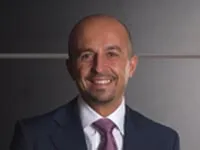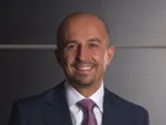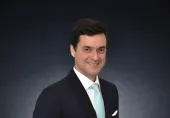
Automating the investment funds landscape in Asia
By Carlo MinieriAcross Asia, investment fund transaction processing methods and distribution models differ markedly. The reason is that domestic investment fund markets have matured according to individual market needs.
Furthermore, certain capital markets are only now starting to unlock the potential of foreign investment into domestic funds and vice versa, i.e. Asian investment flows into off-shore centres like Luxembourg and Dublin.
That said, the one common thread that binds Asian markets together in regards to fund processing is manual intervention. Labour-intensive working practices, with their associated operational risks, continue to blight order routing and both unit and cash settlement from Tokyo to Taipei to Jakarta. At the heart of Asia’s investment fund conundrum - how to achieve efficient and automated transaction processing, without adding layers of additional costs - lie an over-reliance on telephone, fax and email.
The course to eliminate unnecessary manual intervention involves co-operating with established fund processing service providers and optimising existing parts of the Asian and international capital market infrastructure. AFAC, the Asian Funds Automation Consortium, comprising over ten premier-class fund promoters, is driving straight-through processing (STP) initiatives in Asia Pacific, including recommending the use of SWIFT’s ISO 20022 messages. Some Asian markets are more advanced, while others lag behind.
For example, Korean Securities Depository (KSD) is the single point of entry for both Korean trustee and retail market domestic fund order flows. It onward routes these orders to the relevant transfer agents (TAs) for settlement and cash-related movements with the fund promoter.
Essentially, a full service. While this model works well for all of the domestic market orders, increasingly KSD is being called to offer access to a greater range of foreign off-shore funds. While adding greater investment choice is a logical step for this growing economy, it does lead to operational challenges.
As a consequence, KSD has entered into an exclusive agreement to adopt as part of its infrastructure Euroclear Bank’s cross-border investment funds platform – FundSettle – to process Korean investor off-shore fund order flows through to settlement.
Moreover, the way FundSettle interacts with over 500 TAs worldwide is being refined to cater for a growing distributor base in Korea looking beyond its own shores. The appeal of such an arrangement for domestic distributors is that they can consolidate both domestic and international order flows through one relationship with KSD. This eliminates the relationship costs of having to service multiple bilateral links with different TAs and fund promoters within and outside Korea.
Also, distributors do not need to amend message formats to reach the global investor community, as Euroclear Bank, SWIFT, AFAC and KSD have modified the ISO messages to make them compatible with Korean message standards.
Whatever the level of processing sophistication in individual Asian markets, the benefits of fund processing automation are clear throughout the chain. Promoters, TAs and other intermediaries see the benefits of using proven technology as a way to reduce the costs and risks of manual transaction processing. Automation is the only effective and efficient way for back offices to deal with these increased investment volumes, benefit from economies of scale and work with other back offices that have already automated.
Carlo Minieri, Director, is responsible for coordinating sales efforts across the four Euroclear offices in Asia (Tokyo, Beijing, Hong Kong and Singapore), as well as the liaison between the Commercial and Product Management division for the Euroclear group.
Carlo Minieri previously worked as Head of Southern Europe, Middle East and Africa for Euroclear Bank. He was responsible for the team of professionals covering client relationships in the region and promoting Euroclear's products and services.
Mr. Minieri joined Euroclear in 2004, and has over 15 years’ of experience in the commercial area. Mr. Minieri previously worked in Citibank International and MasterCard Europe, first in the pricing and yield division and after in the commercial area. Before this, Mr. Minieri studied in Belgium and completed his Masters in Business Administration at the Solvay Business School.
Mr. Minieri holds a Bachelor of Science degree from Vesalius College, Brussels (BE).














 Advertise
Advertise










